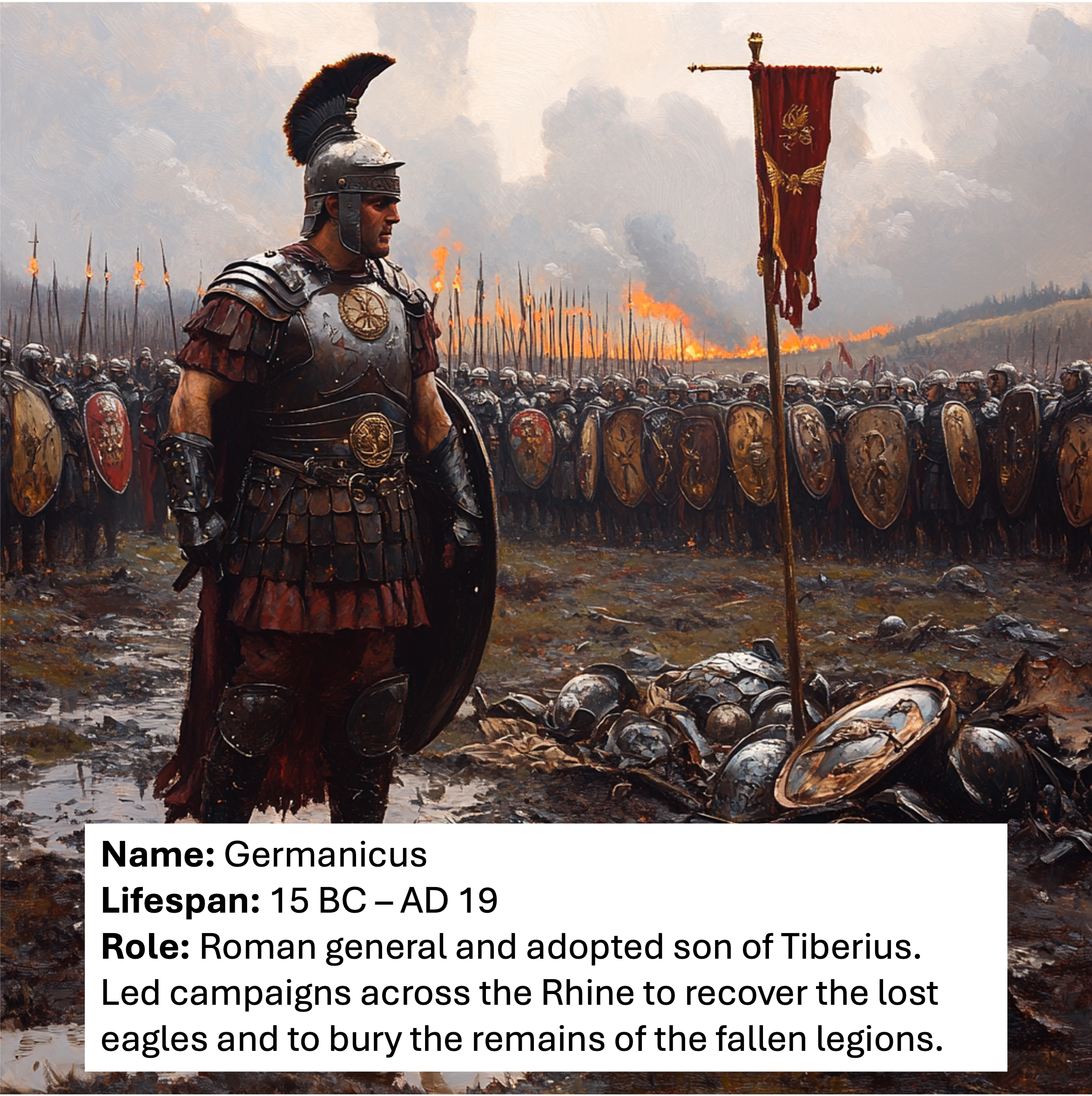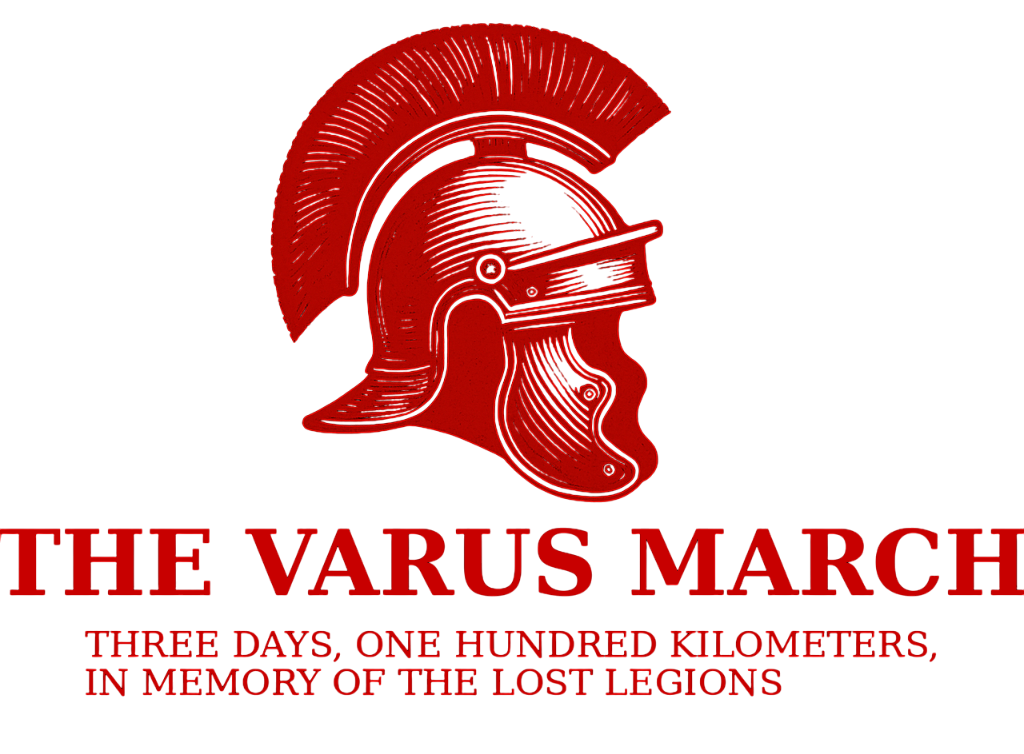
Introduction
Germanicus Julius Caesar (15 BC – 19 AD) was a member of the Julio-Claudian dynasty and a highly respected Roman general. He was the adopted son of Tiberius and nephew of Emperor Augustus, marked early for a prominent role in Rome’s future.
Germanicus became central to Rome’s response to the Teutoburg disaster.
Role in the Events
Between 14 and 16 AD, Germanicus led major military campaigns across the Rhine into Germania with the goal of reasserting Roman authority and recovering the lost standards (Aquilae) of the legions.
He achieved significant tactical victories against Arminius and the Germanic tribes, notably at the battles of Idistaviso and the Angrivarian Wall. His forces also conducted burial ceremonies for the Roman dead at the battlefield of Teutoburg, an act described by Tacitus as a somber ritual of remembrance.
Germanicus successfully recovered two of the three lost Eagles, a major symbolic success for Rome.
Legacy
Though Germanicus achieved notable battlefield victories, sustaining Roman control east of the Rhine proved impractical. Tiberius, now emperor, recalled him to Rome, where Germanicus received a triumph in 17 AD.
He remained highly popular among both the army and the Roman populace. His early death in 19 AD under suspicious circumstances removed one of Rome’s most promising leaders.
Germanicus’s campaigns helped restore Roman morale but confirmed that permanent conquest of Germania was neither practical nor desirable under the circumstances.
